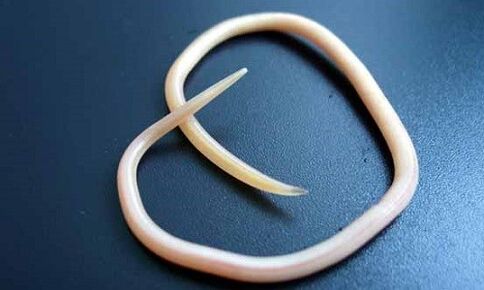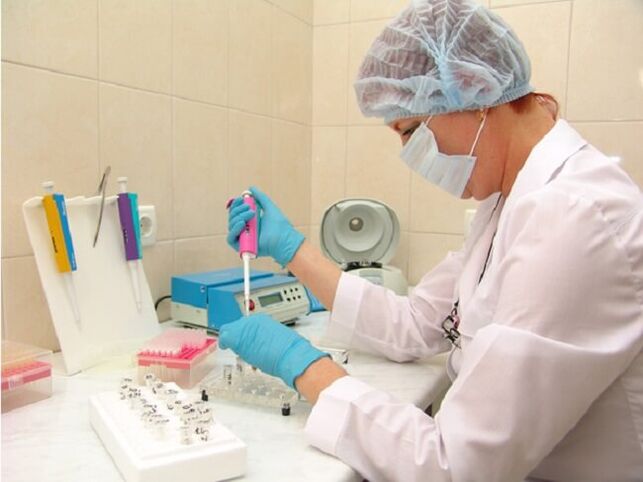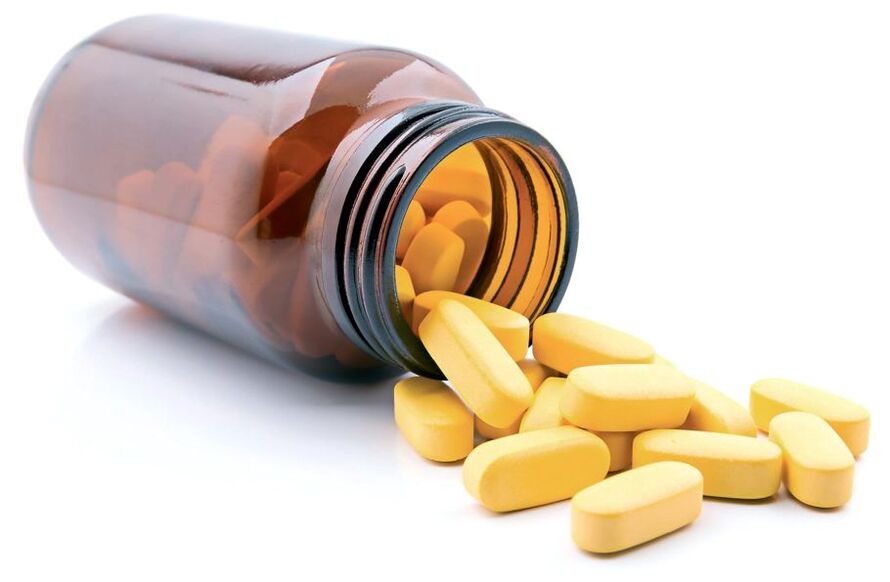
The symptoms of parasites in the body are varied. Parasites are so adapted to life in the human body, making them their home, that a person simply does not pay attention to them. However, at the same time, it is able to detect some other symptoms of widespread diseases, under which the protozoa can disguise themselves. These signs serve as indirect signals that "uninvited" visitors have settled inside.

Worms and other microorganisms live, feed and multiply in the human body. They inhabit the skin, eyes, hair and other internal organs. And only such signs of the presence of parasites, such as the constant feeling of fatigue or obesity, can be evidence that a person still has worms.
Science has reliably discovered more than 250 different types of worms that can live not only in the human intestines, but also in the liver, lungs, heart, brain and other organs of the body. Medical statistics are relentless: more than 95% of the world's population is infected with parasites. That is, virtually any individual is not considered an exception. Other research has shown that the source of 4/5 of all infections and cancers is toxins released during the vital activity of parasitic organisms. Every year, 15 million people in the world die just from being infected by a parasitic infection, which eventually kills them.
Therefore, doctors advise to carry out the cleaning of parasites in all people who have long-term pathological processes and for whom traditional treatment does not help.
Common symptoms of the presence of parasites in the body
However, in order to approach the subject not at all unjustifiably, it is worth knowing the symptoms of helminths:
- weakness caused by anemia that can not be treated with medication.
- a sudden exhaustion of the body, an ever-emerging feeling of hunger.
- spontaneous weight gain, increased hunger, difficulty losing weight.
- migraines and headaches of unknown nature.
- frequent diarrhea and constipation, replacing each other.
- disorders of the gastrointestinal tract, the phenomenon of the "nervous" stomach.
- an ever-emerging feeling of weight on the right in the subchondral zone.
- joint pain (mistakenly confused with arthritis), muscle pain.
- Multiple skin defects: from acne to seborrhea, neurodermatitis, psoriasis.
- reduced immunity, resulting in frequent colds and infectious-viral diseases, often signs of herpes.
- Allergic reactions of the body to various substances-allergens.
- a nervous condition occurs accompanied by chronic fatigue as a result of insufficient absorption of valuable elements and vitamins A and B12 from food.
- poor ability to work, momentary fatigue, lethargy during physical and mental activity.
- sleep disorder.
Symptoms of parasites in the body include heart disease and cancer.
Taken separately, a sign may not indicate the presence of helminths and other protozoa in the body. If there are enough on their list, you should definitely make sure of the presence / absence of worms by passing the diagnostics. And if it is still there, the body should immediately start cleansing.
Infection by parasitic organisms can be defined as follows:
- Visually evaluate the appearance of a person from the outside. Externally, multiple pimples, freckles, acne, roughness and pallor of the skin, premature facial wrinkles, blemishes, nipples, peeling and breaking of the nail plate and cracks in the heel can occur on the body. All of these diseases of the outer shell of the body are the result of infection of the stomach and intestinal tract with Trichomonas, Giardia and other protozoa. However, there is often a "bouquet" of them.
- When enterobiasis (pinworm infection) in a child, it is possible to observe such external manifestations as: growth failure, underdevelopment of the ear lobes, shorter fingers (fingers are shorter than the length of the palm), the fingerprotrudes more than average, forehead narrow, sparse hair, prolapse, uneven eyes. After examining your tongue and seeing a white coating on it, which is nothing more than Candida fungi, you can determine that the latter are lining the walls of the intestines, esophagus and mucous membranes of the gastrointestinal tract. Removing plaque from your tongue when brushing your teeth will have no effect, so it is best to leave these unsuccessful attempts.
- Analyze the performance of the whole organism and identify any pathogens in it. Symptoms of damage to the female body: pain and inflammation in the ovaries, prolonged periods with severe pain and general weakness, failures (or shifts) in the time of the menstrual cycle. After that, fibroid, myoma, cystic-fibrous mastopathy, inflammatory processes in the bladder, adrenal glands and kidneys take turns.
Manifestations of parasitic infections in men: prostatitis and impotence, followed by adenoma, stones and sand in the kidneys and bladder, cystitis. As a result of infection, mental disorders are possible.
Diagnosis of parasites in the body

At the same time, an individual's organism can be inhabited by a variety of up to several dozen microorganisms. Modern medicine has many methods for detecting the presence of protozoa in the human body.
- In a polyclinic, the presence is most often detected through the analysis of feces in the worm egg. However, the possibilities of this diagnosis in terms of effectiveness are very low, as it shows the result only in 15-17% of cases. Perform other methods of diagnosing helminths.
- Histological co-program. It involves the study, through the most powerful microscopes, of a thin section of feces prepared with special techniques. With this, clear particles of the bodies of the parasites are detected, their eggs with the larvae. It allows you to give an opinion on the type of worms found and to choose the appropriate treatment option.
- The immunological (serological) test allows you to determine the presence in the human body of antibodies and antigens against helminths as a result of a blood test. Diagnostics reveal a high impact only in the last stages of the transmission of a parasitic infection. Its results are reliable only in 60% of cases.
- Hemosamination. It represents the study of the structure of the blood by scanning a "living" drop of blood, which is magnified by about 2000 times. With this method, it is possible to assess the condition of the blood cells, for the presence of bacterial and fungal flora and worm larvae.
- Electroacupuncture method. This method has been little studied by the classical medical science. The study is carried out through special electrical devices and their electrical effects on the body.
Options for treatment and cleansing of the body from infections

Conventionally, all anthelmintic drugs are divided into different groups: chemicals, herbal medicines and homeopathic medicines. More about each type of treatment separately.
- Chemical drugs. They are very effective and give fast results in a month or two. But their toxic action is noted not only in worms, but also in the human body. Among other things, parasites have learned to adapt to chemicals, so the result may not be as expected. The destructive effect of a drug with a name is only counted against one or two types of parasites. Chemical pills cause many complications and side effects.
- Herbal medicines. Herbal collections or extracts from them. Due to these, a high concentration of plant poisons, little tolerated by helminths, is achieved in the body. As a result, the latter are forced to leave their "mother residence" - the human body. Through herbal preparations, it is also possible to enhance the protective properties of the immune system. Safety for humans is guaranteed by them, while parasites have very poor adaptability to them. The period of treatment with herbal medicines for protozoa can last a month or even a year.
- Homeopathic preparations. The minimum treatment time with homeopathic medicines is increased to three months. The maximum treatment period is one year. Efficacy is determined by the qualifications of the doctor, his ability to choose the drug correctly. Even small defects in the treatment regimen can give zero results.
Folk method of getting rid of parasitic infections
The predominant treatment for parasites by folk methods is the use of herbs with bitterness and antimicrobial action.
Specifically, these include tansy, absinthe, felantin, elecampane roots.
The first stage of treatment consists in taking herbal medicines with bitterness, which create unsuitable living conditions for the simplest. Such herbal antiparasitic drugs can be used for a long time without harming the body.
The next step is to take herbal immunomodulators and agents that restore the balance of vitamins with trace elements that normalize the functions of the gastrointestinal tract and strengthen the immune system.
There are several recipes among people from worms.
Before treating them, you should consult a doctor.
As some herbs can cause the body to develop intoxication.








































